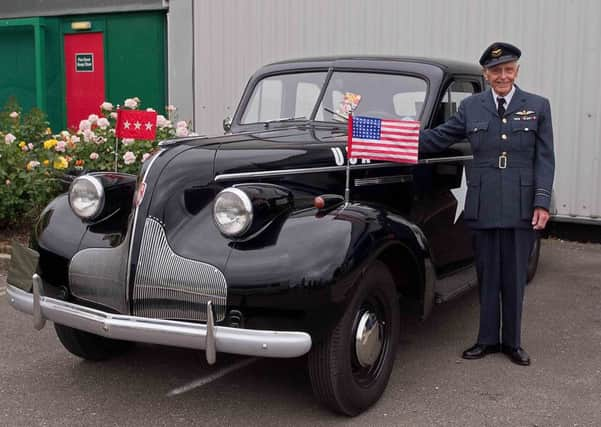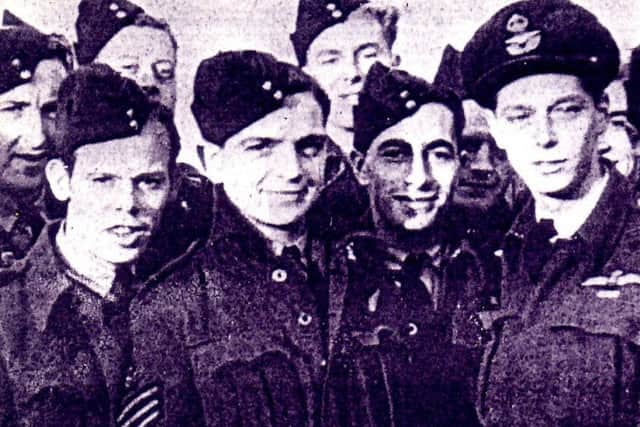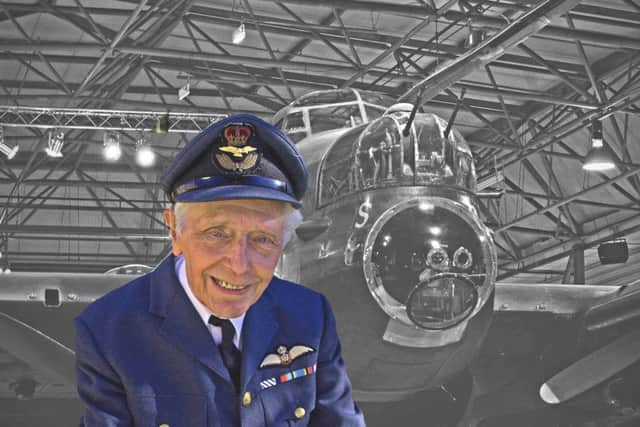War hero Tony Bird remembered by friends


Tony, who lived in Bognor for around 30 years, passed away on the morning of Sunday, July 15 at the age of 95.
A Lancaster Bomber Pilot in the RAF during the war, Tony was awarded an instant DFC (Distinguished Flying Cross) medal because of his actions on one occasion.
Advertisement
Hide AdAdvertisement
Hide AdTony joined the RAF in 1941 as a young man at the age of 18, and was selected for pilot training in England and subsequently in Canada before joining 61 Squadron in 1942.


This was a noteworthy squadron with a number of firsts, including the first raid on German soil in March, 1940, as well as the first raid on Berlin in August, 1940.
With 61 Squadron, Tony flew Lancaster bombers on 22 successful missions over Germany, including five over Berlin.
However, during one of these missions - a raid on Hanover - his Lancaster was severely damaged to the extent that three of the crew baled out, believing Tony to be dead and the aircraft doomed.
Advertisement
Hide AdAdvertisement
Hide AdWith no navigator or bomb aimer, Tony and the remainder of the crew went on to bomb their target and return to base in England.


It was for his part in this mission that he was awarded the DFC.
Tony continued to fly Lancaster bombers until he was shot down over Germany.
This happened during his last mission over Germany, when his aircraft exploded in mid-air - believed to be the result of cannon fire from a German night fighter equipped with upward firing cannons.
Advertisement
Hide AdAdvertisement
Hide AdThese weapons were specifically deployed to take advantage of the under belly, or the ‘blind spot’, of aircraft such as the Lancaster.
Tony survived this incident but spent the following 12 months - the remainder of the war - in the Stalag Luft III prisoner of war camp.
This Luftwaffe-run POW camp is famous for the ‘Great Escape’ of 73 prisoners, 70 of whom were recaptured.
Tony was held here before being liberated by General Patten at the end of the war, exactly a year to the day Tony had first arrived at the camp.
Advertisement
Hide AdAdvertisement
Hide AdBognor couple Tony and Cathy Hughes, Tony Bird’s friends, feel that Tony deserves recognition for his amazing service during the war, and want to remember him for these achievements, as well as reflecting back on their friendship with the war hero.
Tony Hughes, who lives with his wife Cathy close to Mr Bird’s home, said: “Tony is rather unique in that he was very young to become a Lancaster Bomber Pilot, and not many RAF personnel received an instant DFC for actions during the war.
“Tony also had authority from our queen, to wear his uniform on any occasion he chose to use it - not the norm.”
“My wife Cathy first came to know Tony when she was following the sculptor Phillip Jackson from Midhurst who had been commissioned to create the Bomber Command Memorial which stands erected in Green Park London.
Advertisement
Hide AdAdvertisement
Hide Ad“Cathy photographed the various stages of the project and to complete it she wanted to talk to members of Lancaster Bomber crews about their experiences.
“The first member she found and met was Tony Bird who coincidently only lived around the corner to us in Bognor.
“Tony had not long lost his wife Sandy and whilst he was still enjoying his bridge club, life was quite lonely.
“His only relative was his son Stevie who lives and runs a business abroad, so was not able to visit quite as often as he would have liked, but Cathy and I, along with just a few of our friends, continued to visit to the end.
Advertisement
Hide AdAdvertisement
Hide Ad“Cathy and I began including Tony when we had guests at home - he made a very good ‘Dinner Speaker’ reminiscing about his career in the RAF, and because of this gained a new circle of ‘friends’ who all came along to his 90th birthday party.
“Tony was always pleased to see people, but unfortunately most of his friends had passed away before him, leaving him very much on his own.
“Cathy and I over the years have kept an eye on Tony, shopping, helping with chores, sorting his medical problems etc out until he went into a Care home about 18 months ago.
“He was always grateful for everything that was done for him, both by Cathy and I and the Care home.”
Advertisement
Hide AdAdvertisement
Hide AdTony went on in later life to write a book about his career in the RAF, entitled A Bird Over Berlin, which is available on Amazon.
The funeral of Tony Bird DFC will be held on August 6 at 11am at Chichester Crematorium.